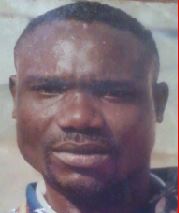
April 27 1993 remains one of the darkest moments in the history of football.
By Nyambira Chivasa
That was the day the Zambia national football team perished when their plane crashed into the Atlantic Ocean.
All 25 passengers and five crew members were killed, including journalist Joseph Bwalya Salim of Lusaka Times. Members of the national team killed in the crash were buried in what became known as Heroes’ Acre, just outside the Independence Stadium in Lusaka.
On this ill-fated trip, the then Zambian technical team comprising the late head coach Godfrey “Ucar” Chitalu and assistant Alex Chola, decided to drop one David Mutale and his friend, the late Harrison Chongo from the travelling team after they had been part of the team that had played a friendly match in Malawi a few days before.
Any rising star would have been upset to be dropped on the eve of a crucial Fifa World Cup qualifier away to Senegal, but that is how Mutale — an immensely talented utility player — cheated death.
“How I was dropped from the team that perished in the disaster, only God knows,” a sombre Mutale told Standardsport 22 years after surviving the tragedy.
“At one point I was furious for having been part of the preparing team, only for the coach to call in two professional players, which saw Chongo and myself being dropped,” Mutale said.
- Chamisa under fire over US$120K donation
- Mavhunga puts DeMbare into Chibuku quarterfinals
- Pension funds bet on Cabora Bassa oilfields
- Councils defy govt fire tender directive
Keep Reading
He added: “It was a moment that one would not forget easily. Having stayed and shared a lot of time with all those players that perished, it was so difficult for me to forget the incident, but thank God I cheated death. Other players like the Bwalya brothers who were plying their trade outside Zambia had other travelling arrangements, hence they also survived the crash. But it was not easy for everyone in Zambia.”
Mutale, who is now employed as a general hand at Liz Inn Lodges in Masvingo, started playing football as a small boy in Zambia’s Copperbelt region where he first made a mark at Mufulira Blackpool, a team his father David Mwansa played for in the Zambian Division One.
Mutale joined Mufulira Blackpool in 1987 and played until 1990, before he joined Zambian top-flight league club Mufulira Wanderers. He played up to 1999 when he came to Zimbabwe to play for then Division One team Ziscosteel FC for a year.
His arrival at Mufulira Wanderers coincided with the departure of Kalusha Bwalya, who had left the club to join PSV in Nertherlands. Fortunately too, the Chipolopolo former captain and national team coach and now president of the Football Association of Zambia, was not aboard the ill-fated flight as he was in the Nertherlands at that time and had made separate travel arrangements to go to Senegal. Mutale left Ziscosteel and joined Chapungu in 2000 where he played for six months and later joined former premier league guys Masvingo United — the team he played for until he retired from active football in 2010.
Back home in Zambia, he was one of the participants at the Under-20 tournament in India in 1991. He also played for Ali Town Club in Saudi Arabia in 1994 for a year and then retraced his footsteps to Mufulira Wanderers in 1995.
Now retired and involved in junior football development, Mutale lamented lack of discipline by players, saying that contributed to the falling of football standards in Zimbabwe.
“Players of today lack discipline and they don’t listen to coaches. They seem to forget that even if you are seated on the bench, you are still on the line-up,” he said.
“They think when you are confined to the bench, most of the time it’s hatred, yet it is a strategy and the coach knows where he can use them effectively. That’s the reason why clubs register more than 11 players.”
“For sure, you cannot be in-form always, but a player must be patient with coaches. Respect is paramount in developing oneself in football. Always listen to the coach and don’t tell coaches what to do, they are professionals,” Mutale added.
He appealed to the corporate world to chip in with sponsorship to boost players’ morale.
“During our time, motivation was there and sponsorship was okay. Money was there but nowadays because of economic hardships, sponsors are not forthcoming and I appeal to the corporate world to emulate what Mhunga used to do to motivate players.”
“Players cannot play football on an empty stomach,” he lamented.
Mutale has respect for Luke “Vahombe” Masomere, who he said was the most successful coach at Masvingo United.
“During Masomere’s reign, we managed to win the Zifa Unity Cup twice in 2002 and 2005. We lifted the Zimbabwe Independence trophy twice in 2006 and 2007 and also the OK Woza Bhora in 2005 and this is no mean achievement.”
“In terms of following, measured by amounts realised at home matches, Una-una were and are still fourth in Zimbabwe after Dynamos, Highlanders and CAPS United, a level that the team has managed to maintain to date, even in the unfashionable world of Division One and I am happy to be part of the team that built such a legacy, together with veteran defender and player coach Godfrey Dondo, Costa Nhamoinesu , Ovidy Karuru, to mention just a few.”
The 45-year-old is now a holder of a Level 2 coaching certificate and is passionate about the development of soccer at grassroots levels.
“My passion is developing football from grassroots levels and my wish is to coach an academy and even establishing one if resources permit. Academies are the backbone of football development in any country that takes football seriously,” he said.











